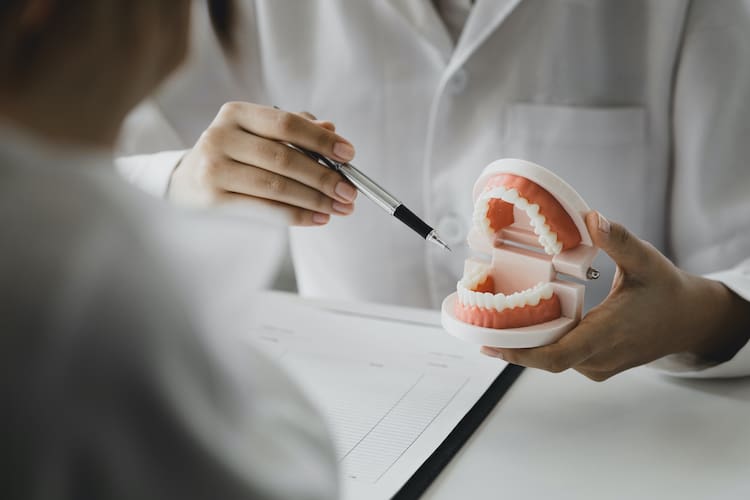Gum disease, also known as periodontal disease, is a common oral health condition that affects millions of people around the world. While it may start with minor symptoms like gum redness or bleeding during brushing, it can progress into a more serious condition that leads to tooth loss and systemic health problems. Understanding the causes of gum disease is essential for prevention and maintaining overall dental health.

The Role of Plaque
At the heart of gum disease is dental plaque. Plaque is a sticky, colorless film of bacteria that constantly forms on teeth and along the gumline. When not removed through regular brushing and flossing, this bacterial buildup begins to irritate and inflame the gums. The body responds with an inflammatory reaction, which is the first sign of trouble.
Gingivitis is the earliest stage of gum disease and is characterized by red, swollen, and bleeding gums. At this point, the damage is reversible with proper oral care. However, if plaque remains on the teeth, it hardens into tartar (calculus), which is much more difficult to remove and can only be cleaned off by a dental professional.
Bacterial Infection and Inflammation
As plaque and tartar accumulate, the bacteria they harbor begin to attack the supporting structures of the teeth. This leads to the more severe form of gum disease known as periodontitis. In periodontitis, the gums pull away from the teeth, forming pockets that trap even more bacteria. Over time, the infection destroys the bone and connective tissue that hold teeth in place, resulting in loose teeth or tooth loss.
The bacteria involved in gum disease don’t just affect the mouth. Research has shown that the inflammation associated with periodontal disease can also contribute to other health issues such as heart disease, diabetes, and even respiratory problems. This connection makes understanding the causes of gum disease even more critical.
Poor Oral Hygiene Habits
One of the primary contributors to periodontal disease is poor oral hygiene. Inconsistent or ineffective brushing and flossing allow plaque to build up unchecked. Neglecting regular dental check-ups and cleanings can also allow minor issues to progress into serious conditions. Good oral hygiene, including brushing twice a day, flossing daily, and visiting a dentist regularly, is the first line of defense against gum disease.
Smoking and Tobacco Use
Tobacco use is another major risk factor for gum disease. Smokers are significantly more likely to develop periodontal problems than non-smokers. Smoking weakens the immune system, making it harder for the body to fight off a gum infection. It also reduces blood flow to the gums, which can mask the signs of gum disease and delay treatment. Quitting smoking can greatly improve gum health and overall oral hygiene.
Hormonal Changes and Medical Conditions
Certain life stages and medical conditions can also increase the risk of gum disease. Hormonal changes during pregnancy, menstruation, or menopause can make gums more sensitive and vulnerable to inflammation. Conditions like diabetes, which affects the body’s ability to regulate blood sugar, can also impair gum tissue healing and increase susceptibility to infection.
Medications that reduce saliva flow or alter gum tissue can contribute to gum problems as well. Saliva plays a vital role in protecting the mouth by washing away food particles and neutralizing bacterial acids. A dry mouth environment allows plaque to thrive, increasing the risk of gum disease.
Genetic and Environmental Factors
Some people are more genetically predisposed to developing gum disease. Even with good oral care, they may still experience problems due to inherited traits that influence the immune response or gum tissue resilience. Additionally, stress, poor nutrition, and lack of sleep can weaken the immune system and make it harder for the body to ward off infections, including those that cause disease.
Gum Disease Treatment in Plano, TX
At Aesthetic Dentistry Centre, your oral health is our top priority. If you notice red, swollen, or bleeding gums, gum disease could be the culprit. The sooner you seek treatment, the less likely you are to develop worsening dental conditions. Contact our office today to schedule a consultation and learn more about how to care for your teeth and gums.
